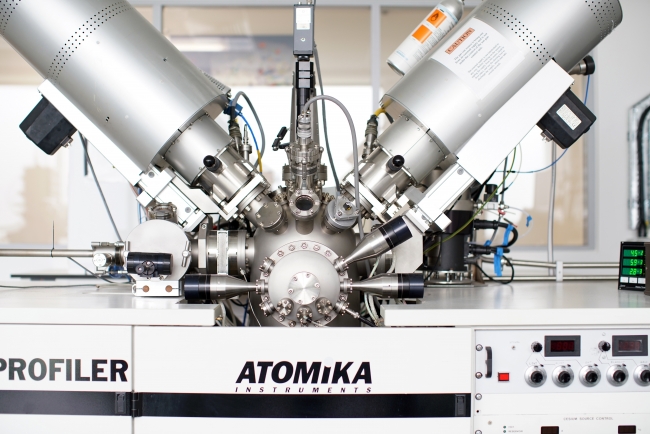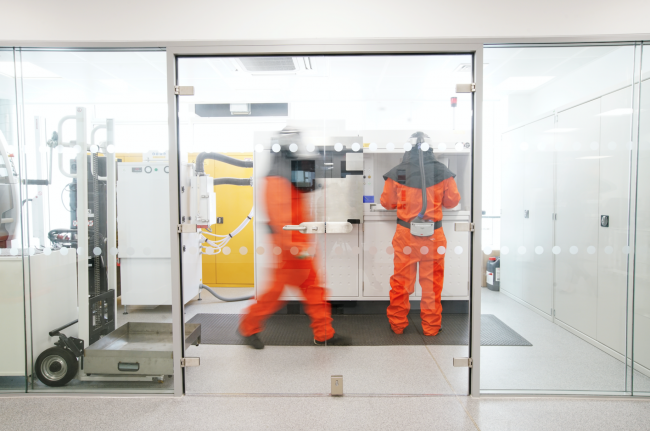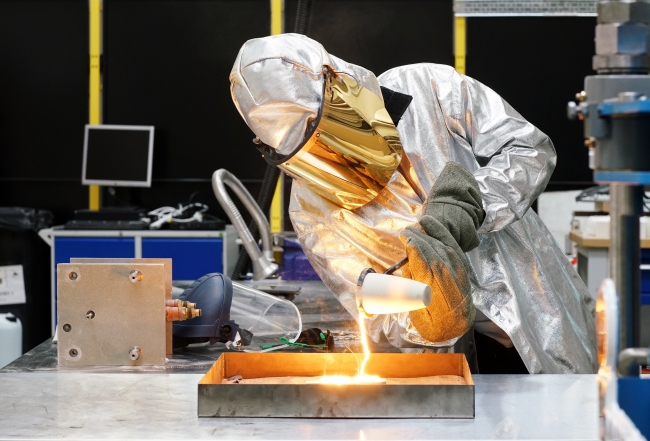4 minute read
WMG: The power to move
Do you drive an electric car? Does it have internet access? Can it squeeze itself into small parking spaces without making you break into a sweat? 20 years ago, the answer would almost certainly have been ‘no’. Even 10 years ago, when there were some electric cars on the market, the answer was ‘probably not’. Today, even if the answer is still no, the likelihood is that you expect that a future vehicle you drive will have all of these features.
Recent years have seen a surge in demand for electric vehicles, EVs, in the UK – new registrations of plug-in cars increased from 3,500 in 2013 to more than 166,000 by August 2018. And the number of pure-electric and plug-in hybrid models available in the UK has ballooned with many manufacturers now offering a number of EVs as a standard part of their model range.
What we see here is being repeated around the world. The global market for EVs and plug-in hybrid vehicles was estimated to be £58bn in 2017, and is growing fast. Predictions that EVs will become as affordable as conventional cars by 2022, will trigger a further boom in demand. All of this provides increased opportunities for the UK supply chain, around EV battery manufacture, power electronics and electric machines and drives.

WMG works with UK-based manufacturing companies and their supply chains to help them innovate to overcome existing challenges and develop new technologies / Picture: HVMC
But it’s not quite as straightforward as that. If the UK is to seize those opportunities, it also needs to put in place an environment which works for EVs: charging infrastructure, domestic charging solutions, and second-life and recycling options for automotive batteries. Big challenges which the WMG, the lead centre for Vehicle Electrification and Connected and Autonomous Vehicles, is working to address. The WMG team is also active in showing how digital manufacturing technologies can help improve supply chain health as it drives towards the goal of improving the competitiveness of the UK automotive sector at a time of significant change in the industry.
WMG’s vision is to develop and enhance the UK’s automotive manufacturing capabilities to enable the development of cleaner, safer and smarter vehicles – WMG has coined the phrase ‘Low Emissions Mobility’ to explain the concept which aligns with the Government’s recently announced ‘Road to Zero’ strategy which aims to make road transport emission-free by 2050.
WMG delivers this vision by working with UK-based manufacturing companies and their supply chains to help them innovate to overcome existing challenges and develop new technologies. The team serves businesses of all shapes and sizes. Between 2012 and 2017, WMG’s dedicated SME Group supported 789 businesses. The results speak for themselves: the projects either created or protected some 240 jobs and added around £55m in value was added to the West Midlands economy.
The expertise and value WMG brings to the success of the UK’s automotive companies is recognised within Government and across industry. Its track record and reputation for delivery has seen the team win significant funding competitions from Innovate UK and take on roles as the Electrical Storage Spoke of the Advanced Propulsion Centre and as a principal collaborator in the development of the new Faraday Institution, the UK’s institute for electrochemical energy storage science and technology.

WMG’s SME Group supported 789 businesses – the projects either created or protected some 240 jobs and added around £55m in value was added to the West Midlands economy / Picture: HVMC
Everything WMG is doing is helping UK businesses seize the significant domestic and export opportunities presented by electrification – estimated to be worth over £6 billion by 2025. There is a continuous global drive to improve the performance of EVs, including range, extended battery life, safety and rapid charging.
The next five years will see WMG continuing to develop the manufacturing systems for cell and battery pack assembly and supply chain solutions, via its UK Battery Industrialisation Centre funded as part of the Government’s Faraday Challenge competition.
Of course, electric vehicles are just one part of the story. Technology is not just opening up options in the way cars are powered, it’s also changing the way we drive them. Already basic autonomous functions like automatic parking and braking are becoming familiar, but the concept of intelligent vehicles is evolving rapidly with WMG leading research that will help move ideas from concept to commercialisation. Their work extends to making sure that great concepts work in real world environments – WMG is leading the Midlands Future Mobility consortium developing a real-world environment to test driverless vehicles on roads in the Midlands.
Automation is about so much more than getting people or goods from point A to point B. Often it’s about keeping costs down, increasingly it’s about reducing damage to the environment and it’s always about keeping people safe and, ideally, happy. WMG has four decades of insight into the UK’s automotive industry and deep experience of bringing business and academia together to solve a host of challenges faced by the sector. A principal goal will see it working to develop improved manufacturing systems for cell and battery pack assembly and supply chain solutions which will help to grow the UK market for batteries to £3.1bn by 2025 and safeguard some 50,000 jobs as the industry shifts from conventional cars to EVs, but who knows where other roads might lead.

WMG, the lead centre for Vehicle Electrification and Connected and Autonomous Vehicles, is working to address the big challenges we face with electric vehicles / Picture: HVMC
More on WMG
Who they are
WMG is actively researching projects that improve how we travel, how we interact and even the quality of the air we breathe. A multidisciplinary department of the University of Warwick, their 600+ staff are made up of academic researchers, ex-industry engineers, business specialists and educators. Their mission is to improve the competitiveness of UK industry through innovation in new technologies and business models and skills development.
What they do
WMG advise and work alongside organisations to help deliver change. It’s focused on developing technology through innovation, to drive competitiveness in UK industry. They do this by collaborating on R&D projects, transferring knowledge into business sectors and educating highly skilled people.
Why they do it
Everything they do is for the benefit of their end-users – industry, commerce, the service sector and Government. They exist so that their innovation and world-class academic and practical knowledge and expertise can meet the biggest global challenges, make a real-world difference and actively shaping the future.
